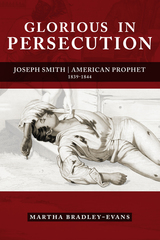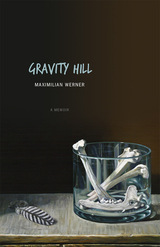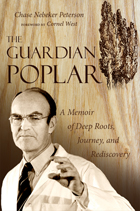4 start with G start with G

Escaping imprisonment in Missouri in 1839, the Mormon prophet Joseph Smith quickly settled with family and followers on the Illinois banks of the Mississippi River. Under Smith’s direction, the small village of Commerce soon mushroomed into the boomtown of Nauvoo, home to 12,000 and more members of the Church of Jesus Christ of Latter-day Saints.
For Smith, Nauvoo was the new epicenter of the Mormon universe: the gathering place for Latter-day Saints worldwide; the location of a modern-day Zion; the stage upon which his esoteric teachings, including plural marriage and secret temple ceremonies, played out; and the locus of a theocracy whose legal underpinnings would be condemned by outsiders as an attack on American pluralism.
In Nauvoo, Smith created a proto-utopian society built upon continuing revelation; established a civil government that blurred the lines among executive, legislative, and legal branches; introduced doctrines that promised glimpses of heaven on earth; centralized secular and spiritual authority in fiercely loyal groups of men and women; insulated himself against legal harassment through creative interpretations of Nauvoo’s founding charter; embarked upon a daring run at the U.S. presidency; and pursued a vendetta against dissidents that lead eventually to his violent death in 1844.
The common thread running through the final years of Smith’s tumultuous life, according to prize-winning historian and biographer, Martha Bradley-Evans, is his story of prophethood and persecution. Smith’s repeated battles with the forces of evil–past controversies transformed into mythic narratives of triumphant as well as present skirmishes with courts, politicians, and apostates–informed Smith’s construction of self and chronicle of innocent suffering.
“Joseph found religious and apocalyptic significance in every offense and persecution–actual or imagined,” writes Bradley-Evans, “and wove these slights into his prophet-narrative. Insults became badges of honor, confirmation that his life was playing out on a mythic stage of opposition. By the time Joseph led his people to Illinois, he had lived with the adulation of followers and the vilification of enemies for more than a decade. Joseph’s worst challenges often proved to be his greatest triumphs. He forged devotion through disaster, faith through depression. Joseph interpreted each new event as God’s will set against manifestations of evil opposed to the restoration of all things.”
Bradley-Evan’s ground-breaking portrait of Smith goes farther than any previous biography in explaining the Mormon prophet and the mystery of his appeal.

"Ever since I was 10 years old, I’d felt myself yearning to 'go astray.' For me, that didn’t mean drinking and cavorting with boys; it meant being myself without fear."—from the book
What happens when a trained singer who grew up in a "house of vowels" finds that her voice is not her own? What happens when a woman loses the Mormon faith of her childhood and abandons the rituals she’s always known? What does a woman, already married for thirteen years by her early thirties, do when she realizes she has been "lying for years?" How does one sing, with grace, from the heart?
In the spirit of Mary Catherine Bateson’s Composing a Life and Kathleen Norris’s Cloister Walk, Heidi Hart’s luminous memoir retraces her search for an opening to her heart’s path. She finds that the religious life of her Latter-day Saint family—which includes a revered General Authority—robs her of her voice and her spirit. When she discovers Catharine, a mute, Quaker ancestor, Hart begins a vital journey—a journey blessed by her devout and devoted husband; a journey that leads her as she studies Zuni mythology, Jewish tradition, Benedictine monastic ritual, Emily Dickinson, and Saint Hildegard of Bingen—a journey that leads her to a place that feels like home: the company of Friends, the Quaker community of Salt Lake City.
With grace and lyricism, Hart shares the private, personal wisdom she has earned in her community of friends, a community that embraces silences and dissonance, a place where she can't keep from singing.

“The sound of parenthood is the sigh.” So begins Gravity Hill, written from the perspective of a new father seeking hope, beauty, and meaning in an uncertain world. Many memoirs recount the author’s experiences of growing up and struggling with demons; Werner’s shows how old demons sometimes return on the heels of something as beautiful as children. Werner’s memoir is about growing up, getting older, looking back, and wondering what lies ahead—a process that becomes all the more complicated and intense when parenting is involved. Moving backward and forward between past, present, and future, Gravity Hill does not delineate time so much as collapse it.
Werner narrates his struggle growing up in suburban Utah as anon-Mormon and what it took for him, his siblings, and his friends to feel like they belonged. Bonding in separation, they indulged in each other, in natural and urban landscapes, and sometimes in the destructive behaviors that are the native resort of outsidersincluding promiscuous and occasionally violent sexual behavior—and for some, paths to death and suicide. Gravity Hill is the story of the author’s descent into and eventual emergence from his dysfunction and into a newfound life. Infused with humor, honesty, and reflection, this literary memoir will resonate with readers young and old.

When Barney Clark received the Jarvik-7 artificial heart in 1983 and Cold Fusion came under fire in 1989, Chase Peterson, as the University of Utah president, was inevitably pulled into these campus events. While these episodes may be the best known in Peterson’s professional history, they are certainly not the only stories that make his autobiography worth reading.
The Guardian Poplar tells of a man who grew up in small-town Utah and carried his pioneer and Mormon heritage to a New England prep school and later to Harvard. He then returned to Utah as a doctor, but unexpectedly found himself back at Harvard as its dean of admissions, handling issues such as the Vietnam War and racial and gender reform. The book explains how Peterson’s home state recruited him back to become an administrator at the University of Utah and how he would eventually become the university president, taking on new issues and challenges. Peterson recounts these years by drawing on anecdotes that recall the people he served and the moments that brought his life meaning.
This autobiography is a compelling account of how Peterson has managed to balance family and career, handle the tensions that have arisen between his faith and his scientific training, and remain solid in the face of his newest challenge—cancer. The book’s engaging prose and honest reflections are sure to intrigue and inspire readers who know the man well, as well as those readers who simply want to know a man who can be described as dedicated, faithful, hardworking, and hopeful about the future.
“When I first met Chase Peterson as a Harvard freshman—along with our joint friend and brother David Evans—something deeply touched me. It was not only his sincere smile and open embrace but also a sense that here was a kind and courageous man comfortable in his own skin, secure in who he was yet eager to encounter new persons, new experiences, and new challenges. . . . He was from Utah but in New England, a Mormon in old Harvard, and a medical doctor in the deanship of admissions. Little did I know that his journey would enhance and enrich my own—owing to his critical allegiance to his family, his faith, his friends, and to his citizenship of country and world. His prophetic witness at Harvard in the turbulent ‘60s and ‘70s, his promotion of black priesthood in the Mormon church, his support of antiapartheid protests in the ‘80s, and his steadfast defense of academic freedom in the Cold Fusion controversy in the early ‘90s all express his quiet and humble effort to be true to himself—a self grounded in, but
not limited by, a rich Mormon tradition.”—from the foreword by Cornel West
READERS
Browse our collection.
PUBLISHERS
See BiblioVault's publisher services.
STUDENT SERVICES
Files for college accessibility offices.
UChicago Accessibility Resources
home | accessibility | search | about | contact us
BiblioVault ® 2001 - 2024
The University of Chicago Press









